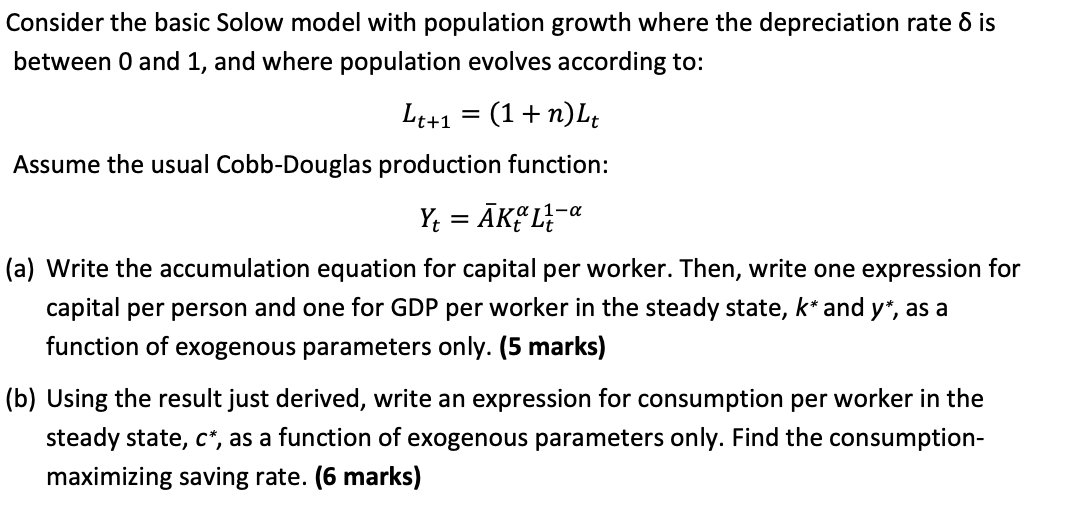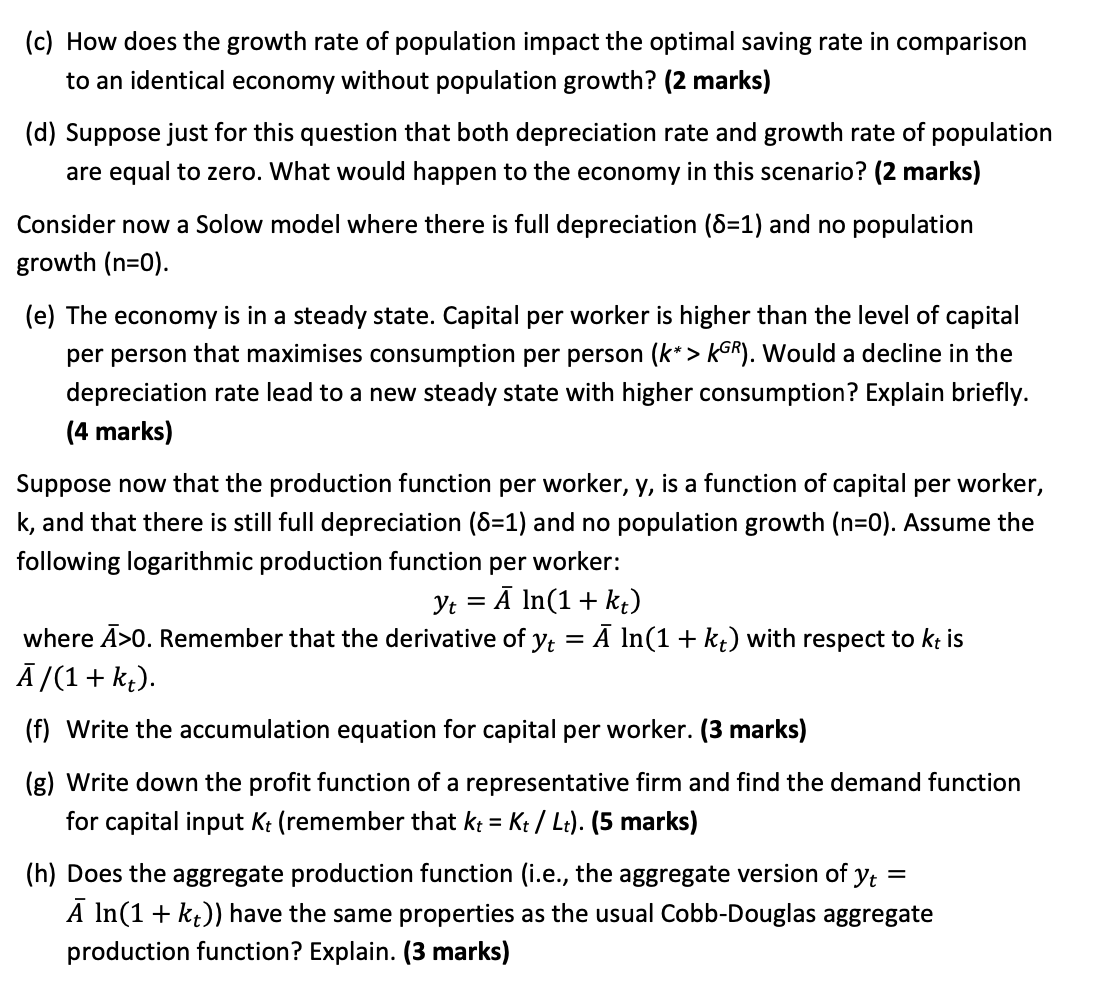Answered step by step
Verified Expert Solution
Question
1 Approved Answer
Consider the basic Solow model with population growth where the depreciation rate 8 is between 0 and 1, and where population evolves according to:


Consider the basic Solow model with population growth where the depreciation rate 8 is between 0 and 1, and where population evolves according to: Lt+1 = (1 +n)Lt Assume the usual Cobb-Douglas production function: Yt =K L-a (a) Write the accumulation equation for capital per worker. Then, write one expression for capital per person and one for GDP per worker in the steady state, k* and y*, as a function of exogenous parameters only. (5 marks) (b) Using the result just derived, write an expression for consumption per worker in the steady state, c*, as a function of exogenous parameters only. Find the consumption- maximizing saving rate. (6 marks) (c) How does the growth rate of population impact the optimal saving rate in comparison to an identical economy without population growth? (2 marks) (d) Suppose just for this question that both depreciation rate and growth rate of population are equal to zero. What would happen to the economy in this scenario? (2 marks) Consider now a Solow model where there is full depreciation (8-1) and no population growth (n=0). (e) The economy is in a steady state. Capital per worker is higher than the level of capital per person that maximises consumption per person (k* >kGR). Would a decline in the depreciation rate lead to a new steady state with higher consumption? Explain briefly. (4 marks) Suppose now that the production function per worker, y, is a function of capital per worker, k, and that there is still full depreciation (8-1) and no population growth (n=0). Assume the following logarithmic production function per worker: Yt = ln(1 + kt) = In(1 + kt) with respect to kt is where >0. Remember that the derivative of yt /(1+ kt). (f) Write the accumulation equation for capital per worker. (3 marks) (g) Write down the profit function of a representative firm and find the demand function for capital input K+ (remember that kt = Kt / Lt). (5 marks) (h) Does the aggregate production function (i.e., the aggregate version of yt = In(1 + kt)) have the same properties as the usual Cobb-Douglas aggregate production function? Explain. (3 marks)
Step by Step Solution
★★★★★
3.53 Rating (156 Votes )
There are 3 Steps involved in it
Step: 1
c In an economy with population growth the optimal saving rate will be higher compared to an identical economy without population growth This is because population growth leads to an increase in the n...
Get Instant Access to Expert-Tailored Solutions
See step-by-step solutions with expert insights and AI powered tools for academic success
Step: 2

Step: 3

Ace Your Homework with AI
Get the answers you need in no time with our AI-driven, step-by-step assistance
Get Started


